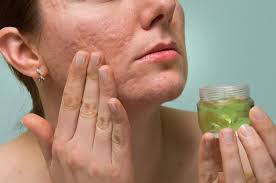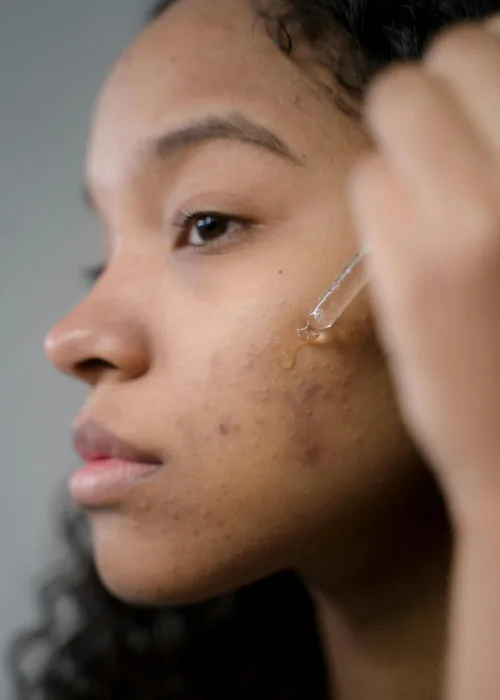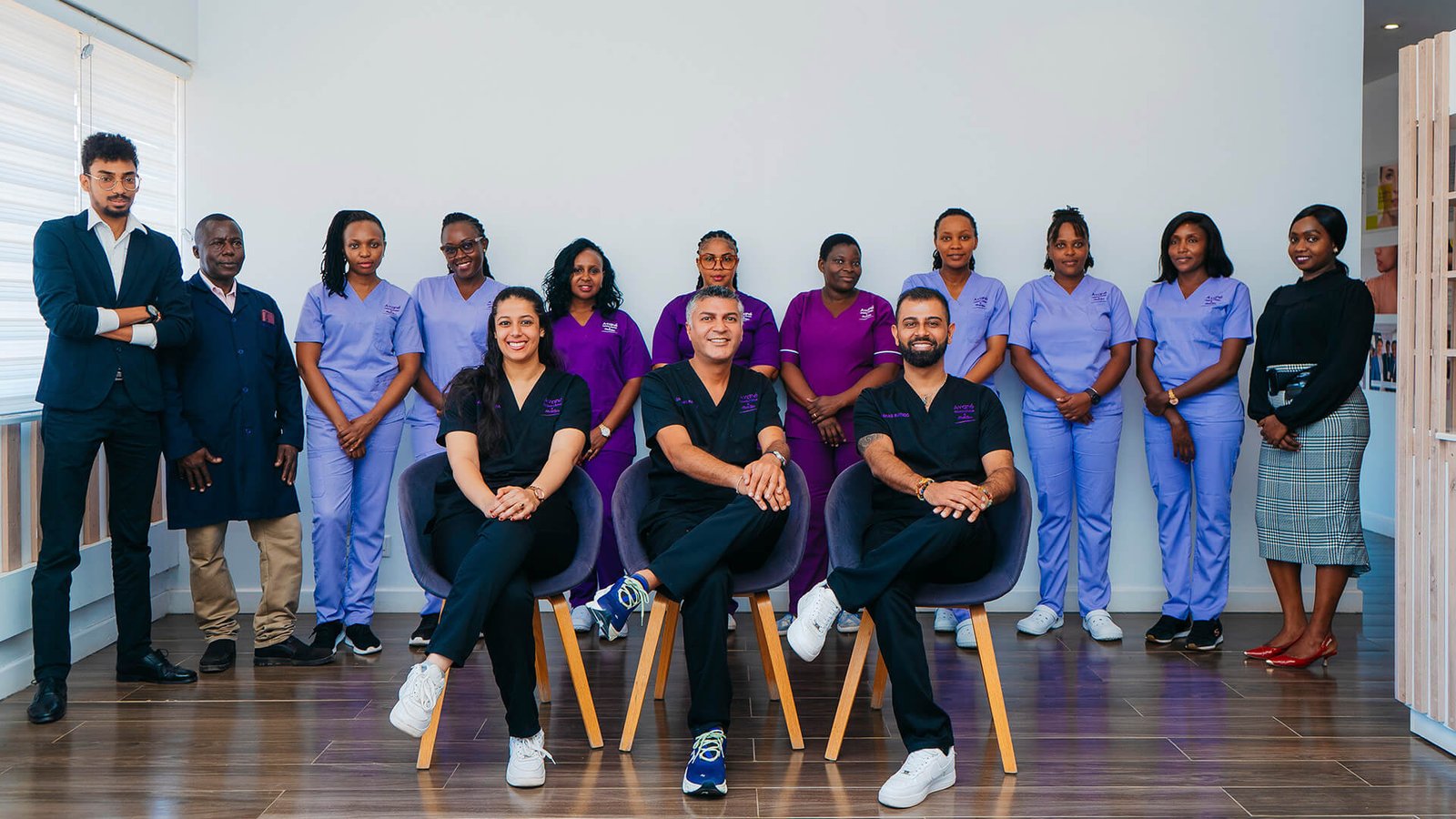Acne is one of the most common skin conditions all over the world. It is estimated that over 10% of the world’s population is affected by acne. Furthermore, 80% of the global population has had or will have acne at some point in their lives. Acne causes the appearance of pimples or spots on the face. It causes not only a cosmetic hurdle for its patients but also psychological and emotional effects. Many people affected by acne go through stigmatization from society, as well as getting negative feedback and comments from others. They tend to get into depression, self-loath and a series of self-harm actions with the hope of getting rid of their problem. Acne is treatable and manageable. With the right care, you can reverse your acne and get clear skin. This article addresses some of the common acne solutions, to help you get rid of the skin condition.
What is acne?
Acne is a type of skin condition that causes spots and pimples on your skin. It is common on the face, neck, shoulders, upper arm, chest and back. It is caused by the clogging of skin pores by oils, bacteria, dead skin cells and dirt. The blockage leads to the development of pimples which are at times called zits or blemishes. Acne doesn’t have any significant health risks, since it is not known to cause any dangerous or chronic diseases. However, it can be painful for some people.

Acne is more common among adolescents and young adults, especially people in their 20s and 30s. The myth that it only affects teenagers is misinformed. Acne can affect anyone of any age. It also affects any gender, religion or race. It is however common among women, as compared to men. Acne can be a result of genetic reasons, hormonal imbalance, environmental conditions, allergic reactions to certain products or the use of certain chemical products. Acne can be in many types. These include:
Fungal acne- Caused by the build-up of yeast inside the hair follicles. They can be itchy and inflamed.
Cystic acne- Causes deep, pus-filled pimples and nodules. They also cause acne scars.
Hormonal acne- Mostly affects young adults who have an overproduction of sebum, which leads to the clogging of pores.
Nodular acne- it’s a form of severe acne. It causes the appearance of pimples on the surface of the skin, as well as tender nodular lumps under the skin.
The good thing about acne is that it is treatable and easily manageable. There are several medical and non-medical techniques that can be taken to treat acne. Here are some of the applicable solutions to help get rid of your acne.
Topical medication (prescription medication).
- Topical Retinoids- These are drugs that contain retinoic acids or tretinoin. They are mostly used with moderate acne. Retinoids are in form of creams, gels and lotions. They are not spot treatments, but rather, should be applied on the entire area affected by acne. Retinoids are used to break up pimples and prevent the clogging of pores. They speed up cell growth, which results in an increased turnover to unblock the pores. Moreover, they act on pimples that have formed under your skin, hence preventing further pimple formation. The results are not instant, and you will be required to use them continuously for several months. Usually, it takes between 8-12 weeks to get the best results from retinoids. Consult with your dermatologist to advise you on the best retinoid products to use for your skin.
- Azelaic acid products- Azelaic acid is a natural product found in grains such as barley, wheat and rye. It has antibacterial and anti-inflammatory properties, which make it effective in the treatment of acne and other skin conditions. Azelaic acid kills bacterial microorganisms and reduces swelling of the skin. It is found in form of gel, cream and foam, which are applied to the entire area affected by acne. This acid is mostly used in the treatment of mild acne. Some forms of azelaic acid products such as Azelex and Fina…, can be safely used during pregnancy and breastfeeding.
- Salicylic acid products- Salicylic acid helps prevent clogging up hair follicles. The acid prevents the abnormal shedding of cells, hence reducing debris and dead cell material that may clog up pores. It is used to treat mild acne. It can be used as a cleanser or a lotion (either wash off or leave on the product). Salicylic acid products should be used continually for the prescribed period. This is because failure to use them stops the effectiveness of the medication.
- Antibiotics- Antibiotics work by killing skin bacteria and reducing redness and inflammation. They are more effective when combined with other forms of treatment, such as benzoyl peroxide. Antibiotics can be applied on the skin, such as gels, creams, solutions, pads, foams and lotions. Alternatively, they can also be taken orally. Topical antibiotics are limited in their ability to penetrate the skin and clear more deep-seated acne. On the other hand, systemic antibiotics circulate throughout the body and into sebaceous glands. However, systemic antibiotics often cause more side effects than topicals, but they can be used for more severe kinds of acne
- Dapsone- Dapsone is a topical gel, with antibacterial properties. It is mostly used to treat inflamed acne. They are commonly used in women with acne.
Oral medication.
- Antibiotics- Oral antibiotics are used for the treatment of moderate and severe acne. Such medications should be prescribed by the doctor, and you should avoid self-diagnosis. Furthermore, they should be used for the shortest period, to prevent developing drug resistance. Furthermore, they should also not be used on their own. They are mostly combined with other drugs such as Benzoyl peroxide, to also reduce drug resistance. Oral antibiotics are more impactful since they will be absorbed into the bloodstream, and work deep within the subcutaneous layers.
- Anti-androgen agents- They are hormonal-based medications. They are used for pregnant women and adolescent girls. They are also commonly used by women who have acne flare during menstruation or those with irregular periods due to excess androgen hormones. Such drugs are used in cases where antibiotics didn’t have much success. They work by blocking the effects of androgen hormones on the oil-producing glands.
- Oral contraceptives- There are 4 combined oral contraceptives that have been approved by the FFA for use in acne therapy in women. They can also serve as normal contraceptives besides working as an acne control technique. These drugs use a combination of oestrogen and progesterone hormones. The impact of such treatment isn’t seen immediately but works in the long-term. These may involve several side effects, such as weight gain, breast tenderness and nausea.
Acne treatment therapies.
- Light therapy. A variety of light-based therapies have been tried with some success. Most will require multiple visits to your doctor’s office. Further study is needed to determine the ideal method, light source and dose.
- Chemical peel. This procedure uses repeated applications of a chemical solution, such as salicylic acid, glycolic acid or retinoic acid. This treatment is for mild acne. It might improve the appearance of the skin, though the change is not long-lasting and repeat treatments are usually needed.
- Drainage and extraction. Your doctor may use special tools to gently remove whiteheads and blackheads or cysts that haven’t cleared up with topical medications. This technique temporarily improves the appearance of your skin, but it might also cause scarring.
- Steroid injection. Nodular and cystic lesions can be treated by injecting a steroid drug into them. This therapy has resulted in rapid improvement and decreased pain. Side effects may include skin thinning and discolouration in the treated area.
Takeaway.
Acne is a natural condition that can affect just about anyone, at any age and at any point. It’s not deadly and doesn’t cause any major health effects. It should therefore not be treated any differently from any other normal condition. It can cause patients to lose their self-worth and confidence. Acne is treatable and can be gotten rid of. Through the right treatment, one can have back their natural, smooth and clear skin within a number of weeks. It is however crucial to get treatment from a qualified and competent medical practitioner. For the best acne treatment, visit the Avané clinic at the Yaya centre, in Nairobi, Kenya. We have a competent team of dermatologists and other specialists, who will partner with you in your fight against acne. Don’t let that acne trouble you, when you can find the best solution to your acne at Avané clinic.

